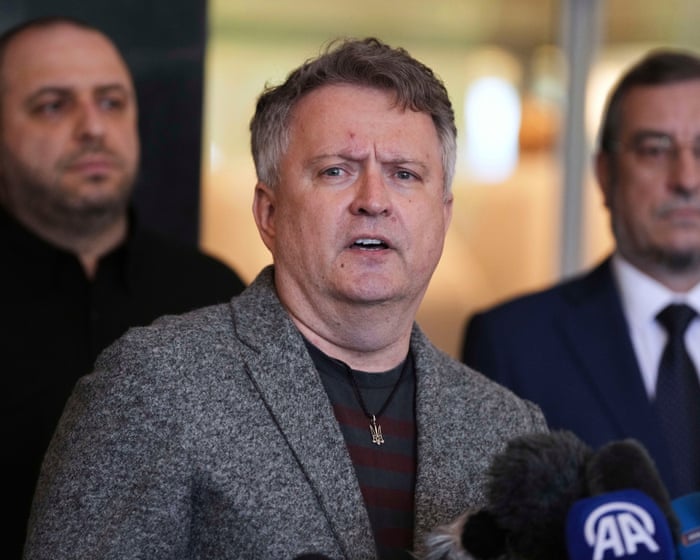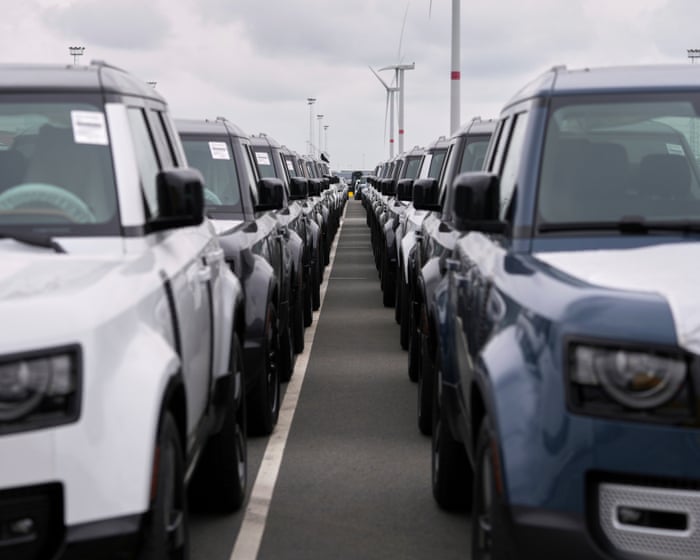Ukraine’s deputy foreign minister has stated that Europe must take seriously the existential threat from Russia, warning that Vladimir Putin will continue to escalate tensions. In an interview with the Guardian, Sergiy Kyslytsya, Kyiv’s former UN ambassador, asserted that the Kremlin is already at war with Europe. He described Russia’s recent drone incursions into several EU countries as calculated attempts to push boundaries.
Kyslytsya suggested that Putin derives emotional, if not physical, satisfaction from humiliating the West by displaying what he sees as his superior strength. He added that the Russian president’s reckless actions risk alienating a White House that seems to be growing cooler toward him, calling it a “boomerang effect.”
He indicated that Russia’s next moves depend on whether Europe and the Trump administration demonstrate collective resolve. Without a strong transatlantic response, Kyslytsya predicted that Putin would intensify his escalation with further actions aimed at disrupting and paralyzing the continent.
Recent weeks have seen Russia send decoy drones into Poland and fighter jets into Estonian airspace. Drone incidents that disrupted flights at Munich and Copenhagen airports have sparked concerns about Russian involvement, though Moscow denies responsibility.
Kyslytsya alleged that Russia has infiltrated EU countries with “agents and moles” responsible for drone flights over airports in Denmark and Germany, as well as allied military bases. He referred to them as “konservy”—Ukrainian for “tin cans”—who can be activated by Moscow when needed.
At a recent summit in Copenhagen, Ukrainian President Volodymyr Zelenskyy met with EU leaders, where Danish Prime Minister Mette Frederiksen noted that Europe faces its most difficult and dangerous situation since World War II, with all countries affected by Russia’s “hybrid war.”
Kyslytsya believes that while many European leaders have recognized the threat, others in Western Europe, including experts, have yet to grasp it. He emphasized the need for greater education to counter a ruthless and unscrupulous adversary.
He pointed out that many politicians still think in terms of 20th-century warfare, involving troops and tanks, whereas in the 21st century, cyberwarfare and drones can cripple technologically advanced nations without traditional weapons.
Speaking in Kyiv, Kyslytsya noted that Ukraine’s relations with the U.S. have improved since spring, when Donald Trump criticized Zelenskyy during their Oval Office meeting. He said Washington’s stance on the war is evolving, with a growing recognition that Putin is the primary obstacle to peace.
In recent months, Ukraine has successfully targeted Russia’s oil production using long-range homemade drones. According to the Wall Street Journal, the U.S. has agreed to share intelligence to help coordinate these attacks.n targets deep within Russia.
Overall, however, Trump has taken few concrete steps to pressure Moscow. When asked if the US president’s threats were more rhetorical than real, Kyslytsya responded, “Trump is holding a big stick. That’s already an achievement. We should not undervalue that. People forget where we were six months ago.”
The deputy foreign minister suggested the war is turning in Ukraine’s favor, even though Russian troops continue to advance—albeit slowly—in several parts of the battlefield. He pointed to positive changes in Washington, “more serious” discussions in Europe, and Russia’s failure to achieve a military breakthrough in its summer offensive.
Sergiy Kyslytsya holds the UN charter as he addresses an emergency special session of the general assembly on Russia’s invasion in March 2022. Photograph: Eduardo Muñoz/Reuters
Kyslytsya is one of the Ukrainian government’s most effective communicators, known for his lively social media presence. He became something of a cult figure in Ukraine soon after Putin’s full-scale invasion when he conspicuously read a book titled What’s Wrong With Diplomacy? as Russia’s ambassador to the UN, Vassily Nebenzia, addressed the security council.
Frequently Asked Questions
Of course Here is a list of FAQs about the Ukrainian ministers statement regarding Europe and the Russian threat with clear and concise answers
General Beginner Questions
1 What exactly did the Ukrainian minister say
A Ukrainian government official publicly stated that European countries are not taking the military and political threat from Russia seriously enough and need to increase their support for Ukraine and their own defenses
2 Why is a Ukrainian minister telling Europe what to do
Ukraine is on the front line of the conflict with Russia They have direct experience with the threat and believe that if Russia succeeds in Ukraine it will be a direct danger to the rest of Europe next
3 What kind of threat is the minister referring to
The threat includes direct military aggression cyberattacks disinformation campaigns and using energy supplies as a political weapon to destabilize European countries
4 Hasnt Europe already taken the threat seriously by supporting Ukraine
Yes Europe has provided significant financial and military aid However the ministers point is that the aid is often too slow delivered in small amounts and that Europes own military production and readiness are not yet at the level needed for a longterm conflict
Deeper Advanced Questions
5 What specific actions does Ukraine want Europe to take
They are asking for
Faster delivery of promised weapons especially longrange missiles and air defense systems
Increased and accelerated production of ammunition and military equipment
Tighter and more extensive sanctions on Russia to cripple its war economy
A clear longterm strategy for European security that includes Ukrainian membership in organizations like NATO and the EU
6 What are the main reasons Europe might be hesitant to do more
Key reasons include
War fatigue The cost of supporting Ukraine is high and some populations are growing tired of the conflict
Fear of escalation Concerns that providing certain advanced weapons could lead to a direct war between NATO and Russia
Economic selfinterest Some countries have historical economic ties to Russia they are reluctant to sever completely
Political divisions Not all European governments or political parties agree on the level of support needed
7 How does Europes dependence on Russian energy play into this
Even after reducing imports Europes past reliance gave Russia significant



